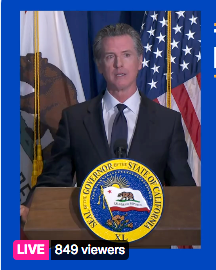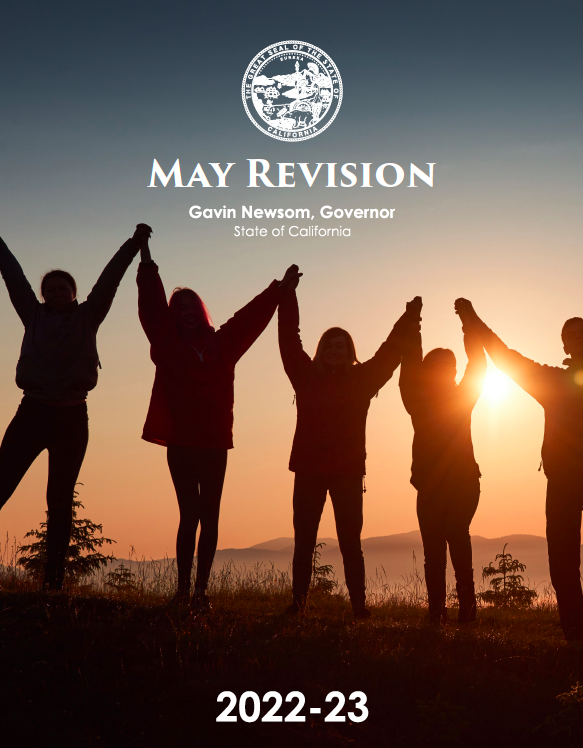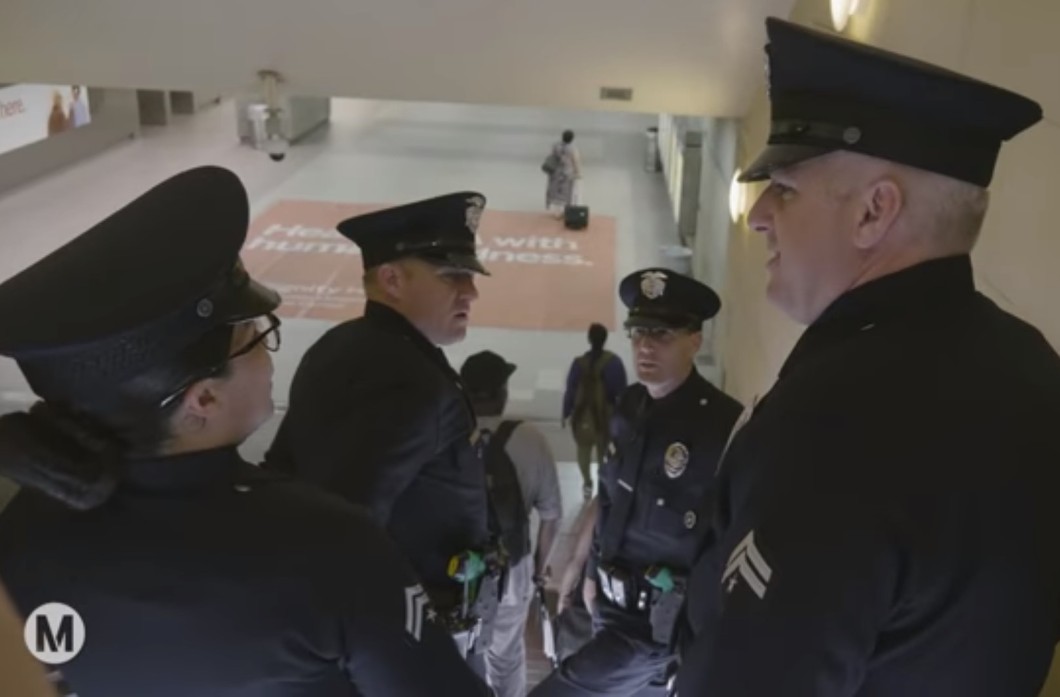In his "May Revision" budget proposal, which reflects state revenue information that is more up-to-date than what was known in January, Governor Gavin Newsom has kept intact his proposal to give money to registered car owners as a form of relief from high gas prices.
The Legislature has not shown much enthusiasm for the idea, but Newsom said his concern was getting money out quickly to people, implying that the Assembly and Senate would come to see his logic.
"We thought the Franchise Tax Board was the appropriate agency for the Golden Gate Stimulus" that went out to taxpayers over the last two years, he said at a press conference on the budget proposal today. But that distribution process isn't completed - those stimulus payments are still going out - and the tax board's current priority is dealing with tax returns, he said.
Going through the FTB would take too long, and there is pressure - from the press and from skeptical Republicans - to speed things up. So the governor's team came up with a plan to use car registration records from the Department of Motor Vehicles. That's why he is still proposing to give registered car owners a check for $400 per car, for up to two cars.
The May revision incorporates a cap on payments, however - not based on income, but on the value of individual cars. That is, only cars valued at less than some unspecified amount would qualify their owners for the $400 payment. Presumably this idea arose because it would be easier - and quicker - to ascertain a car's value through the DMV than a person's income.

When asked whether he had ruled out suspending the gas tax, Newsom said that "without a guarantee that it would be passed on to the consumer, [that] would be foolhardy. A better approach is putting money in people's pockets more quickly."
However, this argument is completely undermined by another piece of the budget proposal - a suspension of the diesel gas tax, which he framed as relief for small businesses. This proposal would cost the state $327 million in 2022-23 and $112 million in 2023-24, and note that the diesel tax supports public transportation. The budget proposal says that an equal amount should be taken from the General Fund and put toward public transportation to to make up for that loss.
Newsom also proposes to give out $750 million in incentives to transit and rail agencies to provide free transit for three months. It's not clear if this amount would be enough for all agencies to eliminate fares entirely for three months. It's also very unclear how this could be done quickly, as grant programs typically take time to develop, publicize, decide, and allocate.
The budget proposal mentions "an additional $500 million for the Active Transportation Program," but it doesn't seem to be an "additional" amount on top of January's proposal. It's also nowhere near the $2 billion the CTC has asked for, and could quickly put to use.
Note that this is, as Newsom said repeatedly, an "unprecedented" budget, with a surplus of close to $100 billion dollars. Even though the "discretionary" surplus is closer to about $40 billion, according to the governor, it is still a lot of money.
Newsom has a lot of ideas for ways to spend it, from health care to education to housing and homelessness to energy to addressing climate change to direct assistance - which he says has already amounted to nearly $9 billion given out to Californians over the last few years.
But $500 million for the ATP - even if that does add up to a total of $1 billion, which it doesn't seem to - is peanuts. Active transportation is not even mentioned among the various pots of money going out to address climate change. Drought, heat, wildfires, clean energy, working lands - all of these absolutely need more attention. But the lack of recognition that real funding for active transportation would help fight climate change is disappointing.
This is especially true in light of the billions of dollars still being invested in new car infrastructure - just in L.A. alone. See Joe Linton's breakdown of Metro's proposed highway widening budget at Streetsblog L.A. for details on that.
On top of all this, Newsom did not mention high-speed rail once. Last year he championed the CAHSRA's request for voter-approved bond funding, but it was blocked by legislators - with consequences for the active transportation program and other funding when negotiations fell apart. It also looks like the governor may have reduced the amount he proposed in January for HSR in this May revision (see tweet below). Does that mean he's decided to let it go for this year?
Summaries of these budget proposals can be found at the Governor's Office website.
The January $9.1b proposal included $4.2b for HSR, but the May budget seems to remove $3.9b from HSR, so it is possible that the rest of the makeup of the $9.6b total transportation funding now proposed has changed from what was proposed in January. pic.twitter.com/boE8U9qWaa
— numble (@numble) May 13, 2022






